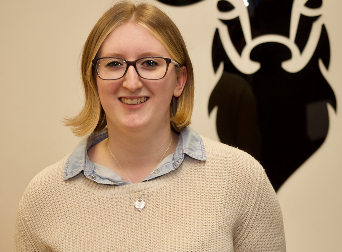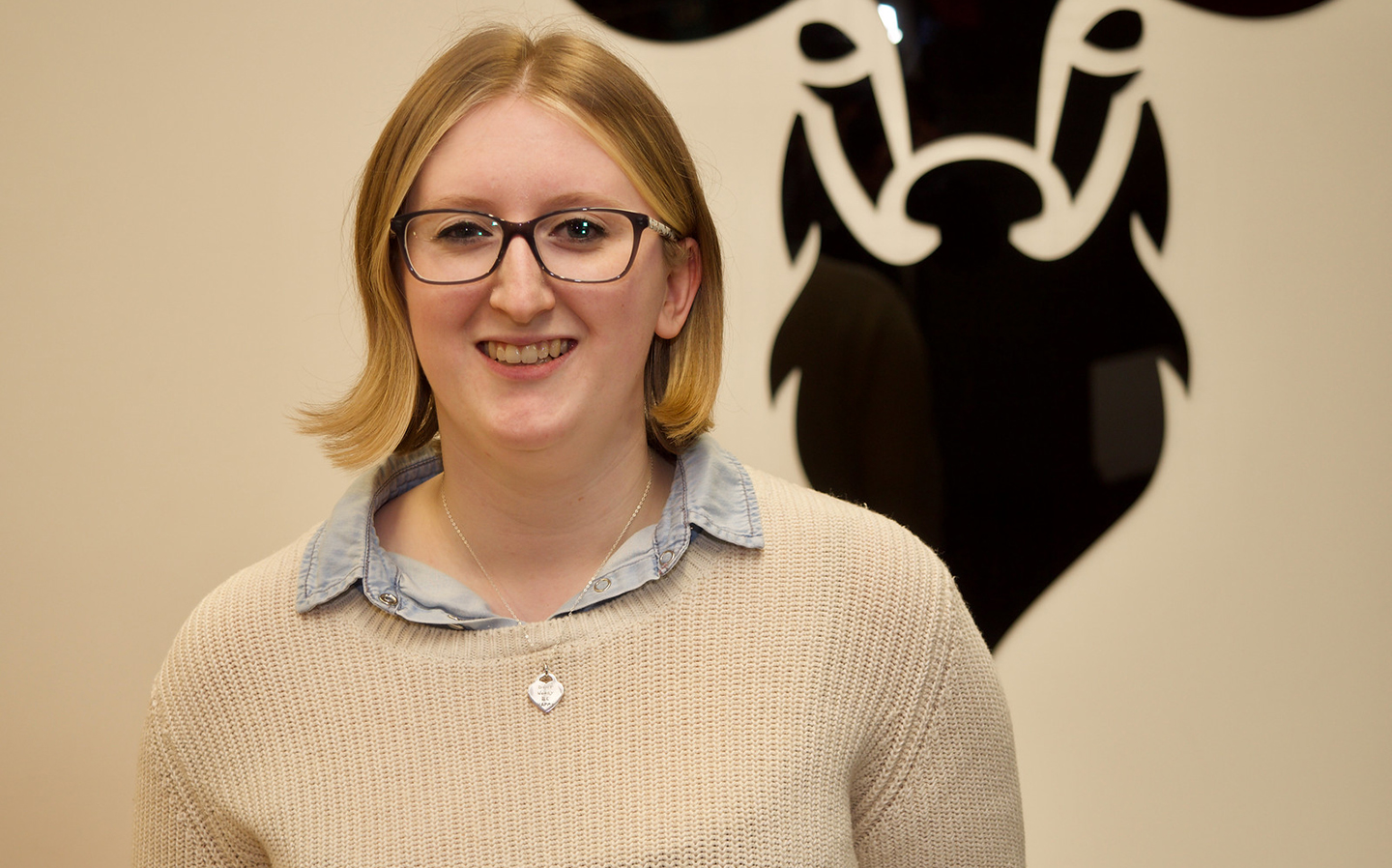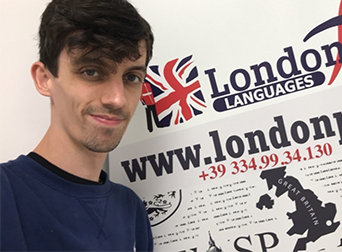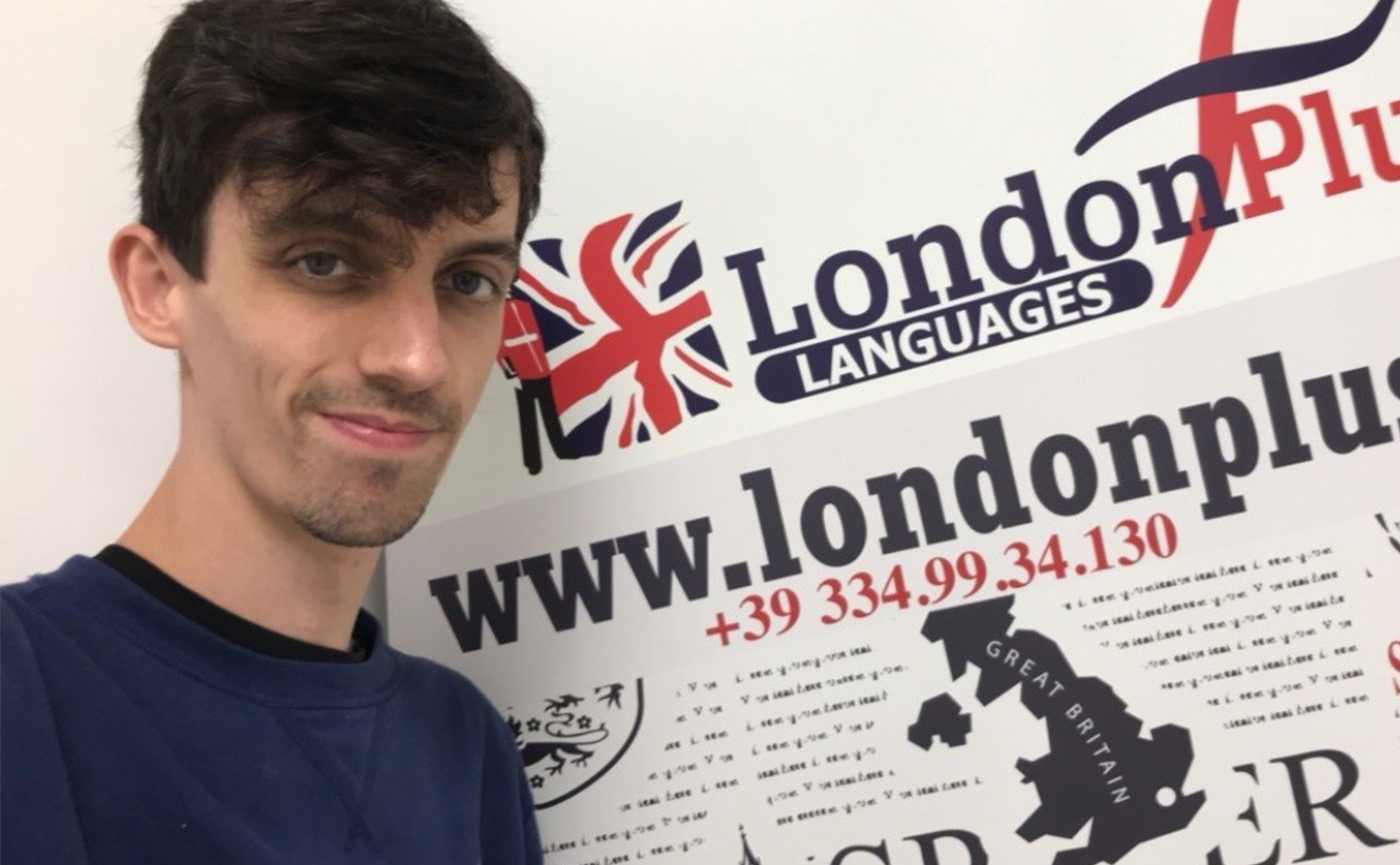BA (Hons) History and Journalism
Key information
-
Typical offer:
Entry requirements -
Fees: See below
Full details -
UCAS code: V1P9
-
Institute code: H36
-
Study abroad option
-
Work placement option
Find out more
Why choose this course?
- Continual updating of content to reflect sought after skills
- Join our award-winning Oral History Team, featured on BBC R4
- Focus on your interests - All History modules optional after 1st year
Ever wondered how past events shape the current world? You’ll learn how the past affects today’s world, how people learn (or don’t learn) from these events. You’ll see patterns and parallels between the past and present. You’ll critically analyse how events are told by different people.
The famous war reporter, Kate Adie, described journalism as “a ringside seat at history” and by studying both subjects together you’ll get the chance to think both about how past events were covered and how current news stories and features can help us understand both past and present better. You’ll start to learn to write and broadcast using journalism conventions while building confidence and communication skills through learning to write articles, blogs and broadcast. You’ll even take a module looking at some of the journalistic stories that have changed History alongside learning to be critical of what you read and how to avoid disseminating or being taken in by fake news.
The University uses a variety of teaching methods. For Journalism and History, you'll have interactive workshops with the occasional lecture. This course is about much more than sitting in a classroom. It’s about doing practical work to get you ready for a career, with employability skills built into all modules. It’s no wonder that 80% of graduates are in work or doing further study 15 months after the course (Graduate Outcomes, 2019/2020). History and Journalism graduates have in the past gone into areas such as journalism, marketing, PR and the civil service.
You’ll study at the University that has contributed to ‘Harry Potter: A History of Magic,’ part of a British Library exhibition. You’ll learn about national and international history, from Europe to Africa and America. Our course focuses on the connection between past and present, linking people’s history and everyday lives.
Your Journalism lecturers are practising journalists and journalism theorists who are experienced in a range of platforms and you will learn to both write and broadcast. There are also ample opportunities to get involved in extracurricular activities, such as clubs and societies. As part of the Oral History team, some of our students produced interviews for a BBC Radio 4 programme, which was commended for the Public History Prize by the Royal Historical Society. Many journalism students take part in our Journalism Society, or come to the Media Matters series where you can meet industry practitioners ranging from people running features agencies looking for new talent to owners of their own media companies.
Herts is one of the few universities in the UK with an active Oral History team. This is all about recording people’s stories before they are lost forever. This can be on topical issues, such as immigration and retirement. You could set up your very own project. For example, we've run projects with Watford and Stevenage Football Clubs, local charities, and groups from the wider community, on projects ranging from migrant experiences to the de Havilland Aircraft Company. This optional co-curricular is great for your CV. It helps you develop project management, research and even networking skills, that employers' value. In journalism, you can opt to take a work experience module, build your own portfolio, liaise with international journalists on our international module or even take a placement year in an area related to media or journalism. Our nearness to London means there are a great many opportunities to get a taste of the thriving world-renowned media industry and previous students have had internships ranging from Hello magazine to local radio.
History was ranked in the top 25% of UK universities for research impact. (Research Excellence Framework, 2021).
What's the course about?
In your first year, you’ll learn the foundations of Journalism and History. You can explore faith, magic and medicine and campaigns for freedom and equality. You’ll learn essential journalistic skills, learn about the media industry and think about the importance of behaving ethically.
In your second year, you’ll study news, features and radio in more depth alongside the history of journalism. You’ll be able to choose all your History modules. These include family life in the 18th century, crime and society in the 16th century and British imperialism. It’s totally up to you.
Work placement/study abroad option: Between your second and final year, you’ll have the option to study abroad or do a work placement for up to a year. Not only will this give you an amazing experience to talk about but will also give your CV a boost. If you’d rather go straight to your final year, that’s absolutely fine too. You’ll decide in your second year with us, so there is still plenty of time to think about this.
In your final year, you’ll do a final year History project known as a dissertation. You’ll do your own research on a topic of your choosing. You can even do an oral history project if you prefer this – a unique opportunity to combine your Journalism and History knowledge. For Journalism, you can specialise in online Journalism, global news reporting or make your own Journalism portfolio. This will give you the chance to gain work experience in a real news setting, such as a newspaper, magazine or newsroom.
Your main campus is College Lane
This is where the creative arts, science and health-related subjects are based. This means you’ll share the campus with future nurses, scientists, artists and more. You can use the common rooms to relax with friends, work out in the 24-hour gym or have a drink in our on-campus pub or cafes. We also have restaurants for you to eat in or grab something on the go. Our Learning Resources Centres are open 24/7, which means you can study whenever suits you best. Want to pop over to the other campus? You can take the free shuttle bus or walk there in just 15 minutes.
What will I study?
Degree programmes are structured into levels, 4, 5 and 6. These correspond to your first, second and third/final year of study. Below you can see what modules you’ll be studying in each.
Check out our student blogs

Student Blogs
Jasmine - Week at a glance
My week at a glance
History lessons are taught between a mixture of lectures and seminars for the first two years (Level four and five). A typical week would consist of one-hour lectures per module followed by a seminar, which could either be immediately after or on a different day. The seminars consist of smaller groups of people where you discuss both the lecture’s information and the assigned reading. These can be debates, presentations, or simple discussions. So, despite only having contact time for four hours per week, there are independent reading and assignments which need to be completed.
I start my week by completing the required reading, making notes of anything I do not understand so that I can ask my lecturer. After completing the weekly reading, I will work on the assignments. Even though they are mostly due at the end of the semester it is a good idea to work on them throughout, so you do not leave them until last minute.
I participated in active students, which is free for all Hertfordshire students. Here I would attend yoga classes, but there is a wide range of fitness and wellbeing events that take place. I also enjoyed badminton, as you could either go alone or with a group of friends. It is also a good idea to join society as it not only boosts your CV, but it is a way to meet likeminded people and develop friendships.
I also had a part-time job which I would do alongside studying. This means that planning is vital as you want to be on top of your workload to ensure you have enough time to complete it to the best of your ability. It worked well with the history course as most of the work was independent, meaning I could work around my other commitments.
It is important that you allow downtime alongside work as it recharges you and you can produce better quality work. It also prevents you from being overworked and ensures that you enjoy the course.

Student Blogs
Jasmine - Things you should know
Things you need to know before studying History at Herts
Preparation is key! Once you know what modules you are taking it is useful to do some research prior so that you can enter the module with basic knowledge. This makes studying it that much easier and you are less likely to be left behind. It prevents your workload from building up and be unbearable. History is a very independent course and will consist of quite a bit of reading, so you need to organise your time efficiently. Leave enough time to work on your assignments from the start so that if you have any issues you can get them sorted in time.
Complete the required reading as that way you will be able to contribute to the seminar discussions. Furthermore, if you stumble across words you are not familiar with or useful words it’s a good idea to make a keyword list and ask your lecturer if you are unsure of a specific concept. When completing the reading highlight important themes and produce short notes. Put them in your own words and as simple as possible, as it makes them easier to understand in the future. It is usually best to find a spot away from distractions and turn your phone off. Moreover, take regular short breaks, to allow what you have read to sink in.
Do not be afraid to talk to the lecturers, they are lovely and always willing to answer questions, especially on assignments. I found that discussing my drafts with lecturers before completing them allowed me to get high grades as they were able to point me in the right direction. They are there for you, so make sure you use them as much as possible.
Most importantly make sure you are having fun and enjoy yourself. Allow downtime so that you can recover and have the right amount of work/life balance.

Student Blogs
Jasmine - Why I love History
What I love most about my course
I loved that with history you could do as much or little as you wanted. Alongside completing the required tasks, lecturers indicated further reading sources if you wanted to. That meant to if there was a part of the subject that interested you, it was possible for you to explore it further. Moreover, most of my lecturers would ask at the start of the semester what we wanted to get from the course. This meant if there were specific areas that we were most fascinated with or wanted to learn, they aimed to include that into the module.
I also loved that there is a range of topics that are covered, and the ability to choose which ones you wanted. I minored in public history which meant that instead of the typical essay assignments I created a documentary for one module. Another module was work experience, so I got to volunteer. We also went on trips to the archives and Bayfordbury campus which offered alternative styles of learning and experiencing history outside the classroom. This was exciting as I got to try new things, which I would not have thought to do.
The humanities department was extremely inclusive. They have an Instagram and post regular events like rollerblading and film nights which allowed you to socialise with your lecturers and peers. The staff were all friendly and welcoming and always happy to help with any issues. I felt that they truly wanted me to succeed, and they had my back. The events helped to create a work/live balance.
Due to the independent nature of studying history, I was able to adapt to studying around my lifestyle. Because the contact time was only eight hours per week, I was able to work alongside studying. I was also able to study on the train journey or at home when I returned to visit family, meaning that I was not left behind on my workload.

Alumni Stories
Eleanor Pilcher
Meet Eleanor Pilcher who since graduating in 2016 has taken the publishing industry by storm. Eleanor currently works as a Marketing Manager at Avon, HarperCollins Publisher.
Read more stories Find out more about this course| Current job role | Marketing Manager |
|---|---|
| Year of graduation | 2016 |
| Course of study | BA (Hons) History and Creative Writing |

University experience and employability
Eleanor is a keen writer with great creative ambitions. During her degree she undertook a six-month internship at a literary agency in her final academic year. In 2016, shortly after her studies, Eleanor landed a placement at Penguin before getting a job in publishing recruitment. After developing her skills within the industry and amassing and impressive amount of knowledge and experience, Eleanor began her current role at HarperCollins Publishers.
Eleanor's degree encompassed a broad spectrum of critical, analytical and evaluative skills and helped shape her as a writer. Throughout her studies she had been writing a novel, which she submitted to literary agencies after being encouraged by her tutor to do so. It was Eleanor's passion for writing that uncovered her interest in working for a literary agency. Due to the fantastic lecturers on her course and the invaluable industry networks available to students, Eleanor managed to secure impressive opportunities in her chosen industry that have informed her career.
Sher recognises the impact the University has had on getting her to where she is today. 'For me the advice and feedback I received on both my History essays and Creative Writing finals was incredibly useful to my academic and professional development. I learnt to take criticism and to harness it and also write more because of it.'
Ambitions for the future
Eleanor has established herself in her chosen industry yet still has ambition to continue pursuing new goals. On her hopes for the future, she says: 'I hope to run a marketing department within a publishing company, possibly the one I'm at now. I hope to publish a novel and continue my freelance writing and public speaking on the side.'

Alumni Stories
Callaghan French
Meet Callaghan. Callaghan’s love of history inspired him to study at Herts and now he is teaching in Italy.
Read more stories BA (Hons) History| Current job role | English as a Second Language Teacher in Italy |
|---|---|
| Year of graduation | 2022 |
| Course of study | BA (Hons) History |

A love of history
Callaghan’s love of history started in primary school, and it stuck with him up until it was time to apply to university. He visited Herts for an open day and was impressed. He says, ‘Herts offers the opportunity to study a wide range of historical topics, they have a huge library, and extensive resources available to students. I also had a compulsory academic support module in the first year which was very helpful for my studies.’
His time at Herts was impacted by the COVID-19 pandemic, but one of Callaghan’s favourite moments was when he and fellow committee members were able to revive the History Society once restrictions were lifted. He says, ‘Working together to achieve this after such a tough period is an experience I will always value. I’d recommend that everyone join a society!’
Callaghan says that the most interesting part of his degree was his dissertation because he had the opportunity to research a topic of his choosing and present it to his lecturers and course mates.
Teaching in Italy
Callaghan is now a Teacher in Italy, where he teaches English as a Second Language. He says, ‘My course shaped me into a strong and confident speaker, which has greatly helped me in my current role. I was able to practice this skill in seminars and the occasional presentation.’
Callaghan is considering a career in academia or the Civil Service. His advice to current or future Herts students is to, ‘Work hard, but ask for help if you need it.’

